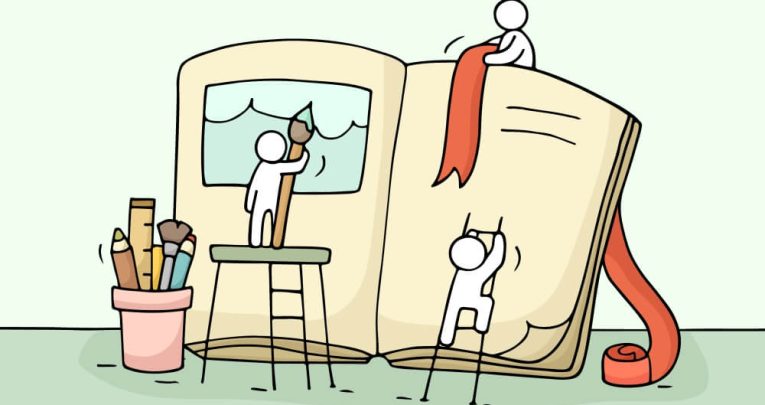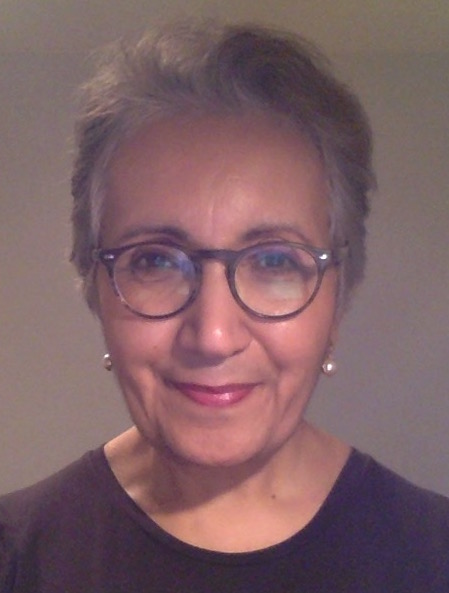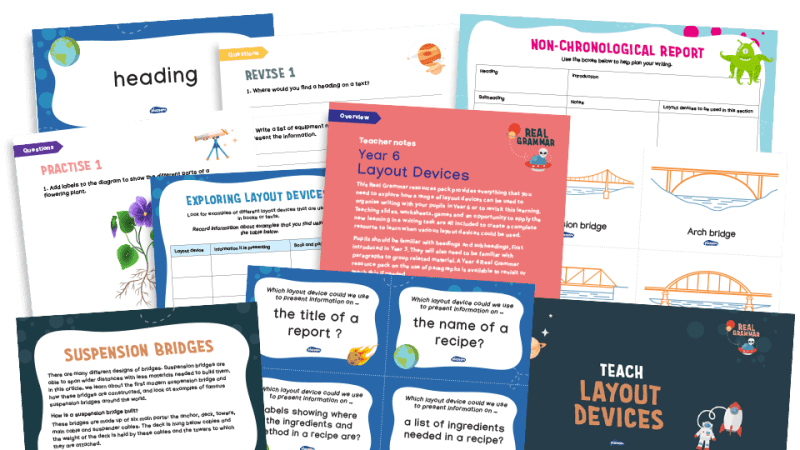“English Literature doesn’t need to literally represent race or social experience – it needs to capture pupils’ imaginations”

As calls to deconolonise the curriculum grow louder, we should consider what might be lost from the study of English literature if we do, says Alka Sehgal Cuthbert…

- by Dr Alka Sehgal Cuthbert
- Teacher, independent academic, writer and director of Don’t Divide Us Visit website

‘Students can succeed in English without ever engaging with ideas about postcolonialism, with literature written by a BAME writer, or with literature that features a BAME protagonist and highlights features of cultural difference.’
Lesley Nelson-Addy, PGCE English Curriculum Tutor at Wolfson College, Oxford, writing in the NATE publication Teaching English
‘Removing poetry would risk alienating Black and brown pupils even further from “a GCSE that already excludes their voices and experiences”, she says. ‘… A lot of them don’t relate to English because they don’t see themselves in it. They don’t see it as something that is for them.’
English teacher quoted in a Huffington Post report
on reforms to the English literature GCSE
The above voices no doubt mean well. They want to play an active part in creating a better, more equal society. Who could take issue with that?
Yet there are some important questions worth asking here. For example, it isn’t obvious why knowing postcolonialism – essentially a form of critical social theory – should be a prerequisite for success in GCSE English.
Nor is it clear that social inequalities are, or should be, the preserve of school study, particularly in English classrooms. Aren’t the complexities of social inequalities best addressed by citizens participating in the public, adult world of politics?
Shouldn’t the main task of English teachers be to develop pupils’ imaginations and their knowledge of the expressive and communicative power of language?
Finally, to assert that Black and brown pupils need to ‘see themselves’ in a subject, particularly English literature, begs the question – isn’t one of the main benefits of literature its ability to place readers inside a different state of subjectivity belonging to someone else?
Written for you
Assertions such as the ones above are often advanced to explain why more BAME pupils don’t pursue literature beyond GCSE, or why allocations of A*s may be unevenly distributed along ethnic lines.
But in 2007, 22.7% of Caribbean pupils chose English literature A level – the largest ethnic group that chose this subject. The claim that students don’t choose literature because they don’t see themselves in it can, at best, be only partially true.
Many students have long understood what Maya Angelou powerfully expressed when she said the following: “The poetry you read has been written for you, each of you – Black, white, Hispanic, man, woman, gay, straight.” That sentiment can be extended to all forms of aesthetically good art that’s both concrete and universal.
Aesthetic boundaries aren’t rigid. They’re not always easy to discern, but there is a difference between a book that entertains or pleases in an easy, spontaneous way, and a worthwhile literary text.
The latter embodies aspects of subjective, universal experience within the creative confines of the literary form. Such literature might initially seem unfamiliar, strange or ‘difficult’, but it can touch you in a very deep, potentially transformative way.
The literature we choose for our curriculums doesn’t need to literally represent people in terms of skin colour or social experience, but it does need to be good enough that it can capture pupils’ imaginations, so that their capacity for vicarious experience – and vicarious relationships with characters – is extended and deepened.
Picture a class of 8- and 9-year-old Bengali boys and girls from inner London, enthralled while reading about the exploits of a white-skinned, red-haired orphaned tearaway called Pippi Longstocking who lives in a Swedish rural idyll.
The eponymous book by Astrid Lindgren was first published in 1945 and is widely acknowledged as a children’s classic.
Its appeal lies in how Lindgren is able to convey complex emotional and psychological themes that all children are likely to feel at some point in their lives, irrespective of skin colour, socio-economic status, class position, gender and so forth.
The book’s characters express a longing for freedom, whilst simultaneously craving the security of the family home. There are tensions between wanting to be a rebel, while feeling a need for social approval. It portrays the experience of profound loss and avoidance of being existentially ruined by the experience.
Above all, Pippi Longstocking is about the power of imagination itself. Through well-written fiction, pupils can come to recognise the relationship of their inner subjective world to the outer objective world of language, through which the former is made meaningful.
Other justifications
Why, then, do so many voices across the profession seem so willing to forget the inherent power of literature – including its utility as a tool with which to fight racism? I’d venture that one major contributing factor is the decades-long march of educational instrumentalism that began to emerge in the 1970s.
When our political, cultural and academic guardians lack belief or confidence in the universality of canonical knowledge, the resulting vacuum becomes filled with other justifications for education.
First, the economic. Education came to be seen as a means to the end of getting a job, with the subsequent downplaying of English literature within the curriculum in favour of English literacy.
Education has since been subject to all manner of political instrumentalism, such as the belief that citizenship lessons can somehow compensate for increasingly technocratic and anti- democratic policymaking.
More recently, we’ve seen socio-therapeutic justifications that see education as a prime site for tackling a slew of social problems.
Anti-racism is just the latest addition to this unholy mix of instrumentalist forces, and dovetails neatly with several other therapeutic trends in schooling that have seen vulnerability and oppression almost becoming new forms of cultural capital in some quarters.
It’s an approach that might appear caring to some teachers, but can legitimately be seen as ethically and educationally dubious to others.
Literal understanding
The boundaries that mark out literature as a distinct and important form of communicative language have now become so weakened that today’s anti-racist educators have no problem with condoning a highly literal understanding of the subject.
The previously acknowledged universality of many works of literature is often belittled as nothing more than an ideological ruse.
Instead, literature is only valued insofar as it offers a literal representation of activists’ chosen groups. Hence the appearance of alphabetical picture books where ‘A’ stands for ‘Activist’.
Seriously – what does it say for your conception of politics if you believe activism to be a meaningful concept for pre-linguistic toddlers and school children?
Political contestations over how society is organised belong to the realm of the adult political sphere, where we meet as equal citizens even as other inequalities may abound.
The new anti-racism to which a section of the profession seems committed piggybacks off an established model of liberal anti-racism, while shedding the older model’s liberal and universal values.
The wish for some administrators to put only books in the vein of Robin DiAngelo’s White Fragility onto CPD reading lists is indicative of a worldview that brooks little or no questioning.
Proponents of calls to ‘decolonise education’ believe that race is a real and significant fact, but fail to recognise the possibility of objective knowledge. Nor do they choose to acknowledge the moral universalism evinced so concretely in my own classroom experience, and expressed so eloquently by Maya Angelou and others.
Alka Sehgal Cuthbert is a teacher, independent academic and writer, and co-editor of What Should Schools Teach? Disciplines, subjects and the pursuit of truth, 2nd Ed, due for publication in the New Year by UCL IOE Press; she also a supporter of the Don’t Divide Us statement on education and can be followed at @ASCphiled.







